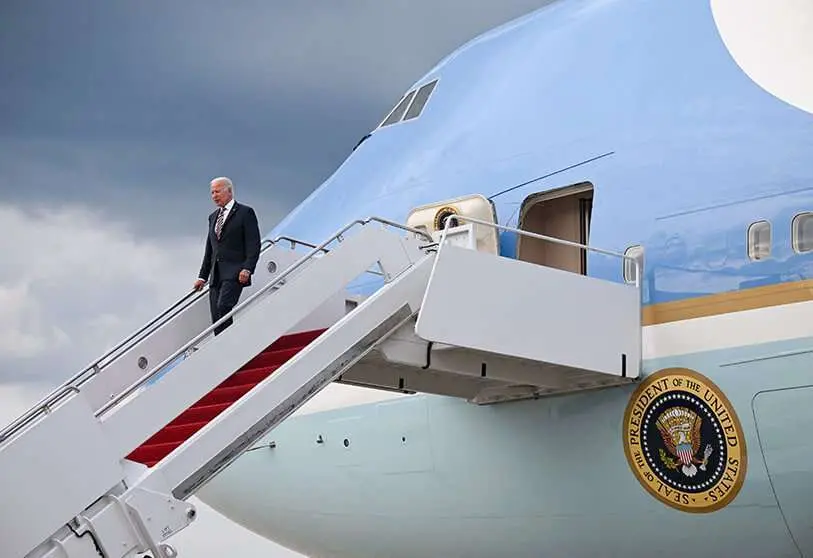Biden in the Middle East

US President Joe Biden aims to restore America's position in the Middle East after the negative consequences of the decision not to pay enough attention to a region with very important ties for decades. The new American reality of being self-sufficient in oil, thanks to fracking, made it look towards the Pacific, towards Southeast Asia, thinking only of its own interests. A mistake.
The almost total absence of the United States and the European Union, beset by an economic crisis that has conditioned their foreign policy in recent years, has allowed the Iranian ayatollahs' expansionist ambitions to grow in Yemen, Lebanon, Syria and Gaza, and Russia, which has used the Syrian war to establish and strengthen its military bases in Tartous and Latakia and to experiment with and promote its new weapons systems.
There is now a very different reality in the region following the signing of the Abraham Accords between Israel and the United Arab Emirates, Bahrain, Sudan and Morocco, an initiative promoted and signed in Washington. On this first trip to the Middle East, Biden can play an important role in giving a significant boost to Saudi Arabia's understanding and recognition of Israel, further strengthening a reality that has allowed rapid interaction and cooperation between the societies of these countries in all sectors of economic, commercial, financial, scientific, health, university, research, education, new technologies, culture and sporting activity. In addition, the geostrategic aspects of political stability and security and defence.
This visit by the US president is an endorsement of his ally Israel, with a visit also to the Palestinian National Authority in the West Bank, just a few months before the mid-term congressional elections in the United States, where the polls are not in favour of the Democrats. His presence will strengthen his interests in the Middle East, expand regional military coordination vis-à-vis Iran at a time when negotiations over Tehran's nuclear programme are unclear, enhance the US military presence in Iraq and Syria, and influence the price of a barrel of oil at a time of Cold War with Russia, when Putin is using energy as another weapon against the Europeans. Biden takes a risk with his visit to Saudi Arabia. Although the Gulf Cooperation Council meeting in Jeddah gives him cover, the meeting with Saudi Crown Prince Mohammed bin Salman is a bet on the country's modernisation process with the 2030 agenda and the measures of openness and modernisation it is adopting. Biden has to recognise another reality in Saudi Arabia with bin Salman at the helm.

